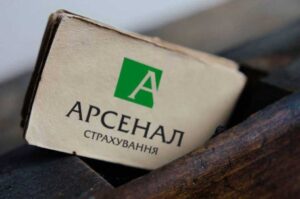
Biosphere Corporation, one of the market leaders in the production and distribution of household goods, plans to increase its revenue by an average of 20% in 2025 compared to 2024, to at least UAH 8.5 billion, according to the corporation’s founder and CEO Andriy Zdesenko.
“The corporation’s business is actively developing and growing in Ukraine and abroad. All groups and key businesses reached about UAH 7.5 billion in revenue in 2024. This is a 20% growth rate compared to the previous year, and we set ourselves a 20% average for the next year,” he said on February 26 at the Business Breakfast organized by Forbes.
According to him, the corporation became less profitable last year because “raw materials, logistics, energy, inflation, and wages are rising.”
When asked about the amount of profit, Zdesenko replied: “We need to figure it out.”
“But we have a level, so different businesses have different levels. For example, tea, which we are investing in, is currently unprofitable, and seriously unprofitable. We are very actively investing in expansion, in the Ukrainian market, in advertising, in marketing. We are taking shares, so there is a serious minus there. And we plan to reach positive zero by the end of the year and continue to make a profit,” he said.
According to him, last year 70% of revenue came from Ukraine, 30% from abroad.
“Our ambition is to reach 50% in Ukraine and 50% abroad in three years. And we do not consider our European business to be exports. For example, in Romania, we have a production facility, a brand, our own sales team, our own marketing, an office in Bucharest, and the Romanian market, like the Austrian market, is our home market,” Zdesenko explained.
Speaking about the development of Graff tea production, which entered the Ukrainian market more than a year ago, Zdesenko said that about EUR 5 million had been invested in production, equipment, and raw materials.
He estimated the Graff brand’s market share at 3-5%, and by the end of the year it is planned to increase it to 10%.
“Not only did we start producing tea, but last year we acquired an interesting plant for the production of professional chemicals for our Biosphere Professional business. A top manager became a partner and invested his money,” said the CEO of Biosphere.
Zdesenko clarified that the plant is located in Slavutych, “not far from the Belarusian border.”
“That’s why we already have six production facilities in Ukraine. And the new direction is called IMO,” he said.
According to opendatadot, IMO LLC (“Industrial Washing Equipment”), registered in Kyiv in 2016, is the ultimate beneficiary since December 2023, with Zdesenko holding a 79% stake, while Serhiy Agibalov owns 20%.
Biosphere Corporation has been operating in Ukraine for over 25 years. The product portfolio includes more than 1 thousand items under 16 own brands (Freken Bok, Fayny Bonus, Vortex, Likit, Smile, Smile Baby, Superfresh, Bambik, Novita, Lady Cotton, Alufix, PRO service, GoWipes, Chysta Peremoha, Pany Blisk and PoketMon). The corporation is the official distributor of such international brands as TORK, Selpak and Fantom.
The corporation’s capacities in Ukraine are represented by factories with a total production area of 35 thousand square meters in Dnipropetrovska, Kyivska and Khmelnytska regions, as well as logistics complexes with an area of 30 thousand square meters. Together with the French Groupe Lemoine, Biosphere also owns a plant in Estonia for the production of cotton products with an area of 8.5 thousand square meters.
At the end of 2023, the company opened a new FOOD business line with its own Cupsoul production, represented by such tea brands as Graff, Ritz Barton, and others.

The demand for jewelry has organically decreased by 15-20% from the previous year, while in the most favorable periods (late 2023 – early 2024), jewelry sales in Ukraine have recovered to about 70% of the pre-war level, Igor Ilchishen, founder of Kimberli jewelry house, told Interfax-Ukraine.
“Last year was very difficult for the domestic jewelry business. Companies, like skillful gymnasts, balanced between opposing trends. On the one hand, there was the record growth in world prices for precious metals, including gold (by 30% on average) over the past decade, and on the other hand, the tendency to reduce effective demand in the country due to the war, economic difficulties and Ukrainians leaving for other countries,” he pointed out the factors that affected the market situation.
Ilchyshen recalled that an additional stressful factor for the jewelry market last year was the draft amendments to the tax code, which proposed to increase the military tax on the sale of jewelry to 30%.
“This initiative was very confusing for market players, because the new tax could bury the entire domestic jewelry industry. Almost every significant market player spoke out on this topic in the public domain, explaining the risks and disappointing prospects of such a decision. Fortunately, our arguments were taken into account,” he said.
Instead, the military rate was raised on general terms, which also affected the industry – the burden on employee salaries increased, which in turn affected profitability.
“Jewelry companies usually increase prices for jewelry only when the cost of raw materials rises. Therefore, the increase in the rate is not very noticeable to our customers, but it has affected the revenue side of the companies. However, compared to what we managed to avoid, this can be called a positive result,” Ilchyshen said.
As for consumer demands, classic designs remain in demand in the expensive segment of the jewelry market, in particular diamond jewelry. The demand for symbolic jewelry and ethnic motifs has also increased. Companies are responding to this demand by launching limited collections.
Unlike many other retail segments, online sales account for a very small share of jewelry companies’ sales, about 10% on average, and there are no prospects for increasing this share, the expert says. This is due to the specifics of the products. Jewelry cannot be attributed to spontaneous purchases: when choosing jewelry, especially in the expensive segment, you need emotional contact, the opportunity to try it on, and get detailed live advice, explains Ilchyshen. Among the sustainable marketing tools that work are holiday promotions, loyalty programs, and capsule themed collections that give a sense of exclusivity to jewelry owners.
“We are very sober about the prospects for 2025. Evaluating the processes taking place around us, the decline in demand will continue, and the financial burden will increase, we will have to adapt to new tax and market conditions,” Ilchyshen says.
In his opinion, it will be easier for large companies to keep the balance sheet due to the availability of resources for development, active marketing and expansion.
“We see this within the industry on the example of wholesale sales in 2024. While in 2023 many had positive expectations and believed in development opportunities, opening new outlets, in 2024 they were closed due to unprofitability. It is likely that these places will be taken by more successful players, accumulating even more resources,” he said.
At the same time, he pointed out that large chains also have their vulnerabilities, in particular due to the National Bank’s increased control over retail outlets operating as individual entrepreneurs.
“The growing tax burden will also force retailers to abandon such formats. This will increase the burden on accounting, and additional qualified specialists will be needed, which is also a problem in the market now,” the expert believes.
In his opinion, this year jewelry companies should decide how to continue to work with the new challenges posed by the system, while they should remain in the legal field and find new growth points.
According to the open data, Kimberly Jewelry House LLC was established in 2021, and in the first three quarters of 2024, the company received revenue of UAH 3 million 122.9 thousand, a net loss of UAH 121.9 thousand.

At a meeting on February 17, the shareholders of Arsenal Insurance (Kyiv) decided to allocate UAH 50.1 million of profit for 2021 for dividends, according to the information disclosure system of the National Securities and Stock Market Commission (NSSMC).
The decision is enshrined in the minutes of the meeting of February 24, 2025.
According to the announcement, the amount of dividends per ordinary share will be UAH 167. Dividends will be paid directly to shareholders in proportion to the number of shares held by each of them in two stages: March 17 and April 22, 2025.
Arsenal Insurance is the legal successor of Arsenal-Dnipro, which has been operating in Ukraine since 2005. It is represented in all regional centers and some major cities of the country.
According to the National Bank of Ukraine, the company is among the top ten insurers in Ukraine in terms of premiums collected in the first nine months of 2024.

The international financial service NovaPay (TM NovaPay) issued UAH 1.7 billion in loans in 2024, the company’s press service reports.
“2024 was a period of active development of the lending business for NovaPay. During this time, the company launched new loan products – installment plans and loans for business, and the total amount of loans issued amounted to UAH 1.7 billion,” the press service of NovaPay said on Tuesday.
In particular, the amount of loans issued last year to small and medium-sized businesses amounted to UAH 281.4 million. Since the launch of the installment service in July 2024, 97 thousand loans for UAH 600 million have been issued. The average installment check amounted to UAH 6.2 thousand, the press service said.
Last year, 123 thousand transactions for UAH 746 million were executed as part of the Parcel on Credit service. The average check amounted to UAH 6 thousand.
“In 2025, NovaPay will expand lending opportunities by launching new loan products for Ukrainians and businesses, the company assured.
Earlier it was reported that the number of customers using the mobile application of the international financial service NovaPay (TM NovaPay) has reached half a million since its launch on December 13, 2023,
NovaPay was founded in 2001 as an international financial service that is part of the Nova group and provides online and offline financial services at Nova Poshta offices. The company provides online and offline payment services in more than 3.6 thousand Nova Poshta outlets across Ukraine. According to the National Bank of Ukraine, the company accounts for about 35% of the total volume of domestic money transfers.
In 2023, NovaPay was the first non-bank financial institution in Ukraine to receive an extended NBU license, which allowed it to open accounts and issue cards, and was the first non-bank to launch its own financial application with a wide range of financial services at the end of last year.

The Verkhovna Rada has recognized the results of education received by Ukrainian citizens abroad, MP Yaroslav Zheleznyak (Voice faction) said on Telegram. According to him, the relevant law No. 12375 was generally supported by 282 MPs at the plenary session of the Verkhovna Rada on Wednesday.
The MPs amended Article 6 of the law “On Complete General Secondary Education”.
The law formalizes the right of Ukrainian citizens to recognize the results of their formal and/or non-formal education in educational entities located abroad (except for the state recognized by the Verkhovna Rada as an aggressor or occupying state).

Pro-Russian presidential candidate Călin Georgescu was detained on Wednesday.
“Călin Georgescu was going to submit his new candidacy for the presidency. About 30 minutes ago, the system stopped him on the road and took him to a hearing at the prosecutor’s office! Where is democracy, where are the partners who are supposed to defend democracy?” – reads a message from his communications team posted on Georgescu’s personal Facebook page on Wednesday.
Earlier in the day, he reported massive searches of his supporters, calling the current government a “communist-bolshevik system,” and called on everyone to gather for a protest on Victory Square in Bucharest on Saturday, March 1.
As reported, Georgescu became the leader of the first round of elections held in the country on November 24, with 22.94% of voters supporting him. The second place with 19.18% of the vote went to the leader of the liberal progressive party “Union for the Salvation of Romania” Elena Lasconi. However, one of the presidential candidates, Cristian Terges, who is supported by the Romanian National Conservative Party, claimed election fraud. The Romanian Constitutional Court unanimously decided to recount all valid and invalid ballots, and on December 6, unanimously decided to cancel the results of the first round of the presidential election two days before the second round. The election was canceled against the backdrop of declassified information from the intelligence services indicating Russian interference in the election.
Later, the ruling coalition in Romania decided on the date of the new presidential elections, which will be held on May 4 and May 18.
Georgescu called Ukraine a “fictitious state” and said that its territories would be divided by neighboring countries. According to him, if elected, he will not allow the continuation of Ukrainian grain exports through Romania and further military aid to Kyiv. He also claimed that Bucharest is not obliged to comply with NATO’s defense spending commitments and questioned the effectiveness of the use of EU funds that have contributed to economic growth and infrastructure development in Romania. Earlier, the Experts Club and Active Group released a video analysis of the most important elections in the world in 2025, for more details, see the video review – https://youtu.be/u1NMbFCCRx0?si=-rc6YHH7EA1pnr7w